Sunday of Orthodoxy
For more than one hundred years the Church of Christ was troubled by the persecution of the Iconoclasts of evil belief, beginning in the reign of Leo the Isaurian (717-741) and ending in the reign of Theophilus (829-842). After Theophilus's death, his widow the Empress Theodora (celebrated Feb. 11), together with the Patriarch Methodius (June 14), established Orthodoxy anew. This ever-memorable Queen venerated the icon of the Mother of God in the presence of the Patriarch Methodius and the other confessors and righteous men, and openly cried out these holy words: "If anyone does not offer relative worship to the holy icons, not adoring them as though they were gods, but venerating them out of love as images of the archetype, let him be anathema." Then with common prayer and fasting during the whole first week of the Forty-day Fast, she asked God's forgiveness for her husband. After this, on the first Sunday of the Fast, she and her son, Michael the Emperor, made a procession with all the clergy and people and restored the holy icons, and again adorned the Church of Christ with them. This is the holy deed that all we the Orthodox commemorate today, and we call this radiant and venerable day the Sunday of Orthodoxy, that is, the triumph of true doctrine over heresy.





 With the blessing of His Eminence Archbishop Elpidophoros of America, the Archdiocesan District held the first Contrition Vespers at the Zoodohos Peghe Church in the Bronx on Sunday evening, February 26, 2023. The Contrition Vespers officially begins the Great and Holy Lenten Season.
With the blessing of His Eminence Archbishop Elpidophoros of America, the Archdiocesan District held the first Contrition Vespers at the Zoodohos Peghe Church in the Bronx on Sunday evening, February 26, 2023. The Contrition Vespers officially begins the Great and Holy Lenten Season.
 On the Saturday of Souls as well as other similar occasions, the faithful offer kollyva. Kollyva is a sort of sweet offering made primarily from wheat and includes some or all of the following: raisins, nuts, pomegranate, cinnamon and powdered sugar. It is often formed in the shape of a mound to resemble a grave and decorated with candy in the sign of a cross. The custom of preparing kollyva predates Christianity and is believed to have started in Ancient Greece, where a dish of wheat and nuts was offered to the dead.
On the Saturday of Souls as well as other similar occasions, the faithful offer kollyva. Kollyva is a sort of sweet offering made primarily from wheat and includes some or all of the following: raisins, nuts, pomegranate, cinnamon and powdered sugar. It is often formed in the shape of a mound to resemble a grave and decorated with candy in the sign of a cross. The custom of preparing kollyva predates Christianity and is believed to have started in Ancient Greece, where a dish of wheat and nuts was offered to the dead.
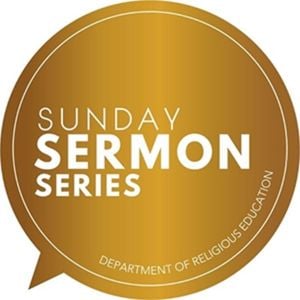 This week, find insights about the upcoming Gospel reading, where we learn about Christ revealing Himself to Apostle Nathanael. How is Jesus the Ladder that unites heaven and earth? Also, what do we learn about humans as icons of Christ? And what do icons have to do with God taking on human flesh?
This week, find insights about the upcoming Gospel reading, where we learn about Christ revealing Himself to Apostle Nathanael. How is Jesus the Ladder that unites heaven and earth? Also, what do we learn about humans as icons of Christ? And what do icons have to do with God taking on human flesh?
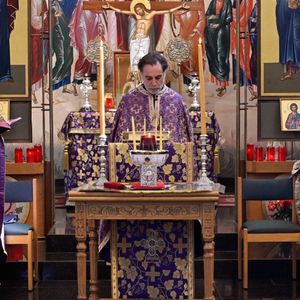 The Clergy of Nassau County in the Direct Archdiocesan District offered the sacrament of Holy Unction for the faithful in attendance on Clean Monday, February 27th at the Church of the Holy Resurrection in Brookville, New York.
The Clergy of Nassau County in the Direct Archdiocesan District offered the sacrament of Holy Unction for the faithful in attendance on Clean Monday, February 27th at the Church of the Holy Resurrection in Brookville, New York.
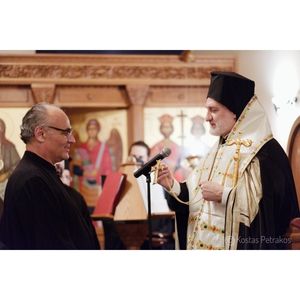 His Eminence Archbishop Elpidophoros of America celebrated Forgiveness Vespers at Saint Katherine Church in Elk Grove, CA on Sunday February 26, 2023
His Eminence Archbishop Elpidophoros of America celebrated Forgiveness Vespers at Saint Katherine Church in Elk Grove, CA on Sunday February 26, 2023
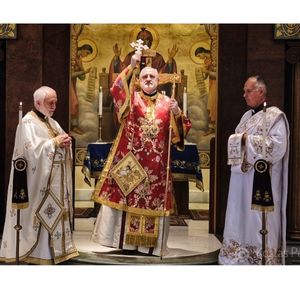 On February 26, 2023, His Eminence Archbishop Elpidophoros of America, together with His Eminence Metropolitan Gerasimos of San Francisco, celebrated the Divine Liturgy at Annunciation Church in Sacramento.
On February 26, 2023, His Eminence Archbishop Elpidophoros of America, together with His Eminence Metropolitan Gerasimos of San Francisco, celebrated the Divine Liturgy at Annunciation Church in Sacramento.
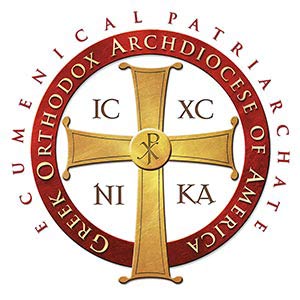 His Eminence Archbishop Elpidophoros of America was greeted at San Francisco International Airport airport today, February 25, 2023, by His Eminence Metropolitan Gerasimos of San Francisco and Chancellor of the Metropolis His Grace Bishop Ioannis of Phocaea.
His Eminence Archbishop Elpidophoros of America was greeted at San Francisco International Airport airport today, February 25, 2023, by His Eminence Metropolitan Gerasimos of San Francisco and Chancellor of the Metropolis His Grace Bishop Ioannis of Phocaea.